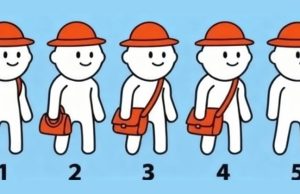Water is said to be essential when it comes to losing weight. Medical website Everyday Health shares water is an important part of all body functions and processes, including digestion and elimination. Water also acts as a weight-loss aid when you’re on a diet because it can help you eat less. So How Much Water is Actually Needed to Lose Weight and what role does it play in the body?
Can water reduce metabolism?
According to the website Healthline, whose editorial team is comprised of medical clinicians, people who drink water instead of sugary drinks are more successful at losing weight and keeping it off. This is because sugary drinks contain calories, so replacing them with water automatically reduces your calorie intake. Studies have shown that drinking 17 ounces (0.5 liters) of water increases resting metabolism by 10–30% for about an hour. This calorie-burning effect may be even greater if you drink cold water, as your body uses energy to heat it up to body temperature.
Water can also help fill you up. Drinking water a half an hour before you eat is believed to help you eat less, according to the National Library of Medicine. One study of overweight adults found that people who drank half a liter of water before their meals lost 44% more weight than people who didn’t.
How much water do you need?
Everyone says eight glasses (8 ounces) of water a day. But that’s changed and it actually depends on your size and weight, and also on your activity level and where you live according to WebMD. Overall, you are recommended to try to drink between half an ounce and an ounce of water for each pound you weigh, every day. For instance, if you weigh 150 pounds, that would be 75 to 150 ounces of water a day. If you’re living in a hot climate and exercising a lot, you’d be on the higher end of that range; if you’re in a cooler climate and mostly sedentary, you’d need less.

Digestive health benefits of water
WebMD shares water also helps you digest your food properly. Water enables your kidneys to function properly and filter everything they need to and allows us to eliminate effectively and not be constipated. People who don’t get enough fluids in their diet tend to be constipated.
In addition, the single biggest cause of painful kidney stones is chronic dehydration. When you don’t get enough water, calcium and other minerals build up in your urine and are harder for your body to filter out. They can form the crystals making up kidney and urinary stones.
References: https://www.womenworking.com/how-much-water-do-you-actually-need-to-drink-to-lose-weight/
https://www.everydayhealth.com/weight/the-importance-of-water-in-your-diet-plan.aspx
https://pubmed.ncbi.nlm.nih.gov/21750519/
https://pubmed.ncbi.nlm.nih.gov/17519319/
https://pubmed.ncbi.nlm.nih.gov/24179891/
https://pubmed.ncbi.nlm.nih.gov/19661958/
https://www.webmd.com/diet/features/water-for-weight-loss-diet#2




















